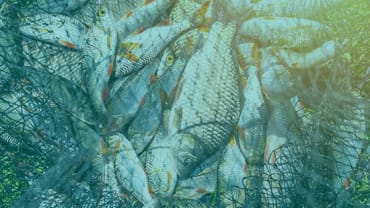Let's look at at how ILO 188 Regulations will impact accommodation, food and water provision, and the complaints procedure for the UK's fishing industry.
The biggest impact is likely to result from the crew accommodation requirements, which come into force on 31 December 2018 and vary for existing and new vessels.
Of course, there are already various pieces of guidance that apply, dependent upon the vessel length; e.g. Codes of Practice under Merchant Shipping Notice (MSNs 1871, 1872 and 1873). The 2018 Regulations emphasise these further by stating that a fishing vessel must comply with the crew accommodation sections in these Codes of Practice or the owner of the vessel will be guilty of offence. This ties into The Fishing Vessels (Code of Practice) Regs 2017 whereby the survey (or certification for a small boat) for compliance will be carried out by the surveyor and the steps that entails.
For "new" boats _ "new" meaning new builds or subject to substantial modification where the contract is placed on or after 31 December 2018, or where delivery is on or after 31 December 2021 _ there are further requirements to be met, which include ensuring there is adequate headroom, insulation, ventilation, lighting, bedding and sanitary facilities. ILO 188 refers to two-metre headroom for bigger boats albeit there can be dispensation to 1.9 metre; presumably these measurements are what the MCA will work to in relation to new boats. This may have a knock-on effect on size, stability, amount of space in other sections, materials and, of course, cost of a new build or modified boat, so for those who are buying or upgrading a vessel, it may be worth taking note of the associated deadlines.
Boats that fall outside the "new" category won't be subject to such onerous requirements. The surveyor role will be significant for existing vessels under ILO 188 as crew accommodation should be appropriate to the "service of the vessel and the length of time the crew live on board". Per above, this will be at the discretion of the surveyor and it is hoped there will be clear guidance for the industry (and surveyors) to ensure consistency.
The skipper, or appointed crew member, must inspect the accommodation at least every seven days, to ensure it is clean, habitable and in a good state of repair. Findings must be recorded in the vessel's log book. Failure is an offence that lies with the owner and sometimes the skipper, either of whom could be subject to prosecution.
The Regulations also provide for a complaints procedure, so if any fisherman feels there has been a breach of ILO 188, they can lodge a complaint with the Secretary of State which will be dealt with in confidence. It is a requirement for the vessel owner and skipper to ensure that any fisherman who has recorded a complaint is not treated detrimentally.
The ILO Regulations also look at the food and water requirements, which will already be met by the majority of the industry. It will be a minimum requirement for the vessel owner and skipper to ensure the crew are provided with free food and drinking water while on board; this needs to be:
- Suitable in quality, quantity and nutritional value _ taking into account the number of crew, duration of the trip and any religious or cultural requirements;
- Fit for consumption and not containing anything which would render it unpalatable or cause sickness or injury to health; and
- Stored in a suitable and hygienic manner.
These minimum standards not only give vessels that fish and land in the UK an opportunity to work to better standards of welfare, but also a chance to be part of a more ethical supply chain. This can only be a good thing for the industry and should support the marketing and quality of the product, particularly given the growing scope for international sale.
Contributor
Senior Associate










